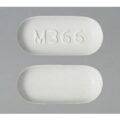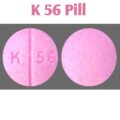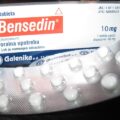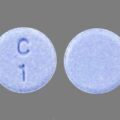What is Angel Dust?
Angel Dust is the street name for Phencyclidine or phenylcyclohexyl piperidine, also known as PCP among other names. It is a drug used for its mind-altering effects. PCP may cause hallucinations, distorted perceptions of sounds, and violent behavior. As a recreational drug, it is typically smoked, but may be taken by mouth, snorted, or injected.
It was originally developed as a general anesthetic but became a popular substance in the 1960s. It’s listed as a Schedule II drug in the United States, which makes it illegal to possess. Angel dust appears in many forms: as a crystalline powder, and as tablets and capsules in a variety of colors, shapes, and sizes. Angel dust is manufactured by kitchen chemists from readily available precursors. The procedure is not complicated and supplies are plentiful. This explains why phencyclidine is a common substitute for less available psychedelic drugs such as mescaline.
The following are street names for Angel dust:
- Elephant tranquilizer
- Embalming fluid
- Hog
- Ozone
- Wack
- Killer joints
- The PeaCe pill
- Rocket fuel
- Supergrass
- PCP
What happens when someone takes Angel dust?
Angel Dust affects multiple neurotransmitter systems in the brain. It inhibits the reuptake of dopamine, norepinephrine, and serotonin. It also inhibits the action of glutamate by blocking NMDA receptors, which are responsible for pain sensation, emotions, learning, and memory functions.
Interrupting these receptors allows the brain to disconnect from normal sensory experiences, or “reality.” In higher doses, however, it may also excite these receptors. A typical dose is 5 to 10 milligrams, and 10 mg has been reported to cause stupor. The effects are felt 30 to 60 minutes after oral ingestion, or a few minutes after smoking. Immediate effects last 4 to 6 hours, but a return to a normal state can take up to 24 hours.
However, because the drug is made illegally in uncontrolled conditions, there is no way of knowing how much is being taken, or what the effect will be.
Short-Term Effects Of Angel Dust
The effects of Angel Dust vary, depending upon the amount of active drug taken and how it is taken. An individual may use Angel Dust because it produces euphoria, psychedelic effects, and a sense of calm. However, they may experience effects that they do not want.
Soon after taking a low dose, there may be a rise in blood pressure, body temperature, and heart rate. A larger dose will have the opposite effect, reducing blood pressure, heart rate, and breathing.
Angel Dust can cause a person to experience:
- euphoria
- sound, image, and body distortion
- depersonalization or feelings of detachment
- loss of balance and coordination
- loss of sensation and inability to feel pain
- acute anxiety, agitation, and mood swings
- feelings of impending doom
- numbness in the arms and legs
Other people may notice that the user is showing:
- poor coordination and an unsteady gait
- bloodshot eyes and rapid eye movements
- slurred or garbled speech or difficulty talking
- confusion and disorientation
- a blank stare
- stupor or lack of movement
- combativeness or aggression
- bizarre behavior
They may be drooling. It can also lead to:
- rigid muscles
- delusions
- amnesia, or memory loss
- chills and sweating
- irregular heartbeat and low blood pressure
- reduced breathing rate
- dizziness, nausea, and vomiting
High doses can lead to:
- seizures
- coma
- damage to the skeletal muscles, known as rhabdomyolysis.
- death
Poor judgment and reasoning skills, psychosis, paranoia, and self-injurious or violent action may occur in those already prone to these behaviors. The person may develop a type of psychosis similar to that seen in schizophrenia. A sense of super strength and invulnerability, combined with the inability to feel pain and poor judgment, can lead to serious injury. Users of angel dust are often brought to emergency rooms because of the drug’s severe psychological effects and violent or suicidal behaviors.
Ingesting angel dust with other central nervous systems (CNS) depressants, such as alcohol or prescription tranquilizers, can lead to coma. Severe angel dust poisoning can also occur if an individual, when attempting to conceal the drug from authorities, mistakenly ingests large amounts due to body stuffing or packing. The effects can be hard to predict because production and sale are illegal and therefore not controlled. The street prices for angel dust ranges from $5-$15 per tablet, $20-$30 for a gram of powder, and $200-$300 for an ounce of liquid PCP.
Long-term health risks
- Long-term effects include:
- stuttering and difficulty speaking
- problems with reasoning and memory
- anxiety and depression
- suicidal thoughts
- social isolation and withdrawal
- flashbacks
These can last for up to a year.
Some people may experience flashbacks and hallucinations for a long time after using ANGEL DUST. This is known as hallucinogen-induced persisting perceptual disorder (HPPD). Toxic psychosis can also develop, causing hostility, paranoia, and delusions in users.
These problems can persist for up to a year or more after an individual has stopped using Angel Dust.
Addiction can also develop, as a person builds up a tolerance to the drug. Addiction and related mental health problems make it hard to function socially, financially, and professionally. This can lead to further complications.
Safety tips
If you’re going to use PCP, there are a few things you can do to keep yourself safe:
- Stick to a low dose. Anything over 5 milligrams can cause serious effects. Use a low dose and avoid redosing in the same session.
- Don’t use it often. Bingeing, frequent use and long-term use can have long-lasting and even fatal consequences.
- Don’t do it alone. You could trip out pretty bad and experience hallucinations, erratic or violent behavior, or seizures. Have someone sober stay with you who knows how to spot the signs of trouble and will get you help if you need it.
- Choose a safe setting. Since your behavior can be unpredictable when you use angel dust, being someplace safe and familiar is important.
- Stay hydrated. PCP can raise your body temperature and cause profuse sweating. Avoid dehydration by having some water before and after you use it.
- Don’t mix. Combining substances raises your risk for overdose and death. Avoid mixing PCP with alcohol or any other substance.
Recognizing an overdose
Call 911 right away if you or anyone else experiences any of these signs or symptoms of overdose:
- trouble breathing
- constricted pupils
- high body temperature
- high blood pressure
- irregular heart rate
- confusion
- agitation
- aggressive behavior
- uncoordinated movements
- seizures
- loss of consciousness
Withdrawal and treatment
The first step toward withdrawing from Angel Dust is to seek supportive therapy. Discontinuing angel dust suddenly can produce withdrawal symptoms. anyone seeking recovery from angel dust use will need medical supervision and possibly hospitalization.
Withdrawal symptoms include:
- craving
- confusion
- depression
While distressing, withdrawal from Angel Dust is not life-threatening. Recovery takes time, however, as the person will need support as they learn the skills necessary for a drug-free life. Those with persistent behavioral problems or distressing psychological effects may need psychiatric evaluation and treatment for mental health problems.
The behavior of a person using Angel Dust can be dangerous to themselves and to others. It is important for the person to seek help, or for their loved ones to intervene, if possible. It may be worth asking a professionally trained person to approach the loved one, as it can be difficult for families to intervene.
Treatment with a drug rehabilitation center or addiction professional is recommended. The SAMHSA website can direct you to helplines and other assistance. SEE What 45105N SAP 5 50 MDMA 6AM T Stands For





